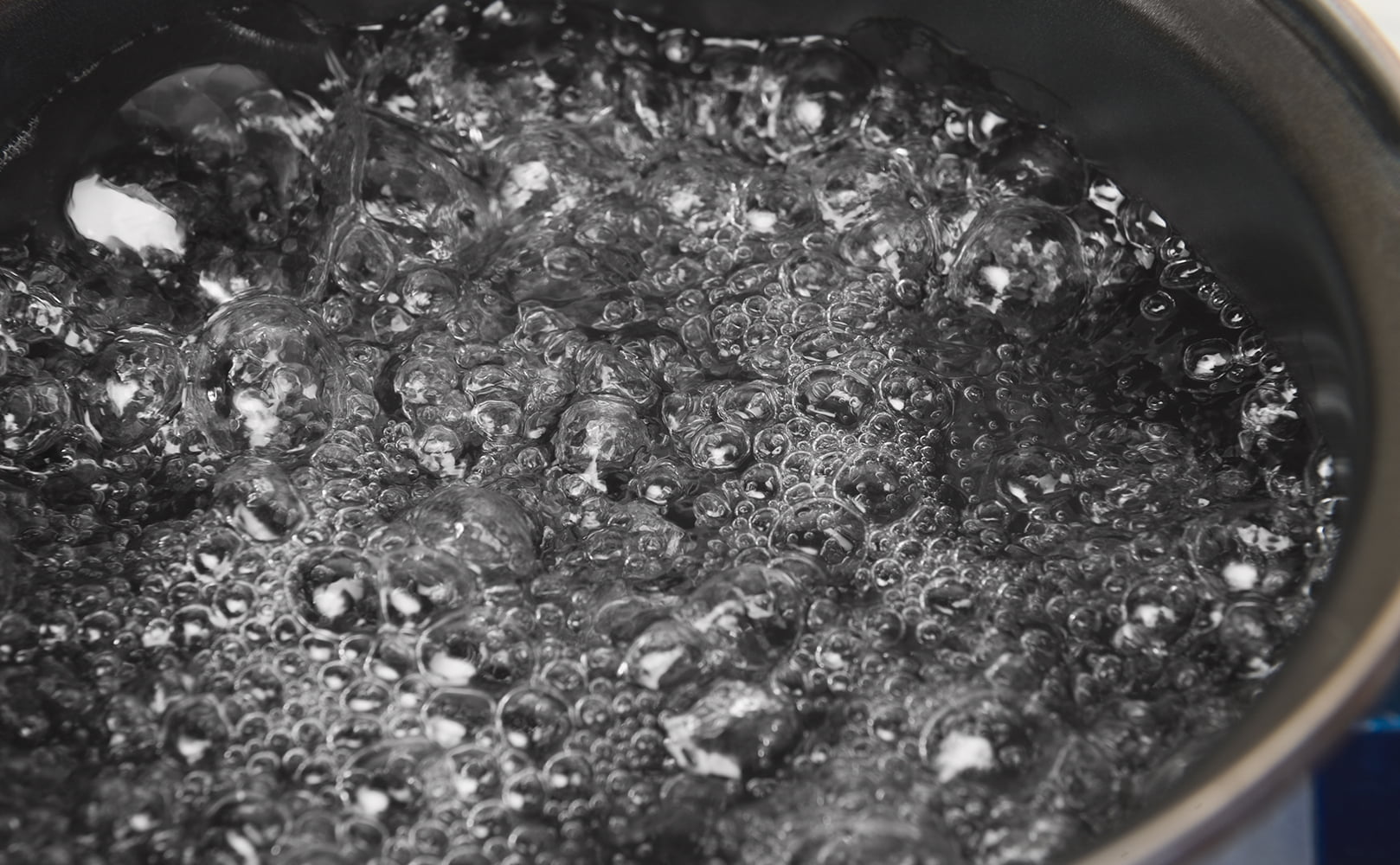Does Letting Tap Water Sit Remove Fluoride?
Written by: Gene Fitzgerald // Last Updated: Oct 20, 2022
This page may contain affiliate links. If you buy a product or service through such a link we earn a commission at no extra cost to you. Learn more.
While fluoride is generally healthy, it can lead to certain issues when consumed in significant quantities. Normally, this isn’t a problem.
But if your diet consists of high amounts of processed foods, you might be pushing yourself toward the limit – especially if your tap water already contains a lot of fluoride and you never filter it.
One way to go about this is removing the fluoride from your water before consumption. How? Some people swear that letting tap water sit removes fluoride. But does it really? Let’s find out!
Key Takeaways
- No matter how long you let a bowl of water sit, fluoride will not be removed from it.
- Fluoride does not evaporate. As such, even boiling water doesn’t remove fluoride.
Does Letting Water Sit Remove Fluoride?
Fluoride does not evaporate. As such, no matter how long you let a bowl of water sit, no fluoride will be removed from it.
In fact, letting water sit can increase fluoride concentrations as some of the water may evaporate. The same goes for boiling. You can’t get rid of fluoride in water using these methods.
How to Remove Fluoride from Water Instead
Removing fluoride from water requires either a specific filtration method, or distillation. You might think that you’re safe because you’re using a water filter, but it’s possible that it’s not designed to specifically deal with fluoride.
Reverse Osmosis
Reverse osmosis is a purification process in which water is forced through a very fine membrane.
Only water molecules are able to pass through the membrane (with some minor exceptions), while everything else gets pushed back. This includes fluoride. Reverse osmosis is a great way to remove fluoride from water, reducing it by over 90%.
Activated Alumina
While it’s not equally effective for all water supplies, activated alumina filtration is another good way to remove fluoride from water. It works best when the water’s pH level is around 5-6, while its effectiveness gets reduced outside of that range.
Distillation
Boiling water may not remove fluoride, but distillation does. It’s highly effective and can easily purify your water supply, removing not just fluoride but various other contaminants as well.
The main problem with distillation is that it’s difficult to apply on a larger scale and is typically limited to individual batches. If you only need to purify a small amount of water, distillation can work very well.
Bone Char Carbon Filtration
Bone char carbon filters are also great at removing fluoride. Note that this is not the same as activated carbon – which, in general, is not effective at all at removing fluoride. Bone char carbon is typically made from ground up animal bones and can significantly reduce the concentration of fluoride in your water supply.
What Does and Doesn’t Reduce Fluoride Exposure?
Adequate water filtration/purification is one of the best ways to address excess fluoride consumption, but it’s not the only thing you can do.
- You can also try adjusting your diet so that it doesn’t include so many processed foods, which are typically very rich in fluoride. Take a look at the toothpaste you’re using as well – there’s a good chance it contains high amounts of fluoride. Switching to a non-fluoridated variant can be very helpful.
- Fluoride is also commonly used as a pesticide. This means that it can easily make its way into your diet through fruits and vegetables. Focusing on organic food can help you reduce the amount of fluoride you’re consuming.
- Tea leaves absorb a lot of fluoride naturally. If you’re a heavy tea drinker, you might want to reduce your consumption habits.
- Finally, if you’re taking any medications, check if they contain fluoride. It’s found in many products on the pharmaceutical market. This is obviously not something you can easily adjust, so if you’re regularly taking medication with a high amount of fluoride, you should focus on some of the above points to reduce your intake.
- On the other hand, some approaches which are commonly believed to be very effective at reducing fluoride actually accomplish nothing. Water filters are a good example. There are specialized filters designed for treating fluoride specifically. Regular water filters are completely ineffective at this task, though. No matter how many stages of filtration you run your water through, you won’t reduce its fluoride content if you don’t have at least one specialized filter for it.
- Boiling your water won’t accomplish anything either. Many people see boiling as a good approach to purifying water. It works very well against bacteria, cysts, and viruses, but it does nothing against fluoride. As we mentioned above, boiling your water will actually increase its fluoride concentration. Some of the water will evaporate in the process, while the amount of fluoride will stay the same.
Why Is Fluoride in Our Water in the First Place?
Fluoride was initially introduced as an additive to municipal water due to its positive role in preventing tooth decay. However, while some studies have shown a clear link between fluoride and a reduced risk of tooth decay, the situation remains unclear with regard to its use in drinking water.
That’s because there’s no noticeable difference in oral health statistics in areas where fluoride is added to the water compared to places where it’s not. Many countries around the world don’t add fluoride to their municipal water, yet they’ve still registered a steady improvement in dental health over the years. The improvement is comparable to the effects observed in countries that do add fluoride.
Health Risks
Fluoride has also been linked to some health issues when consumed in large quantities. The amount you would consume through your tap water is far from enough to trigger these conditions on its own. But when combined with other factors, like a diet rich in fluoride and specific treatments involving fluoride-heavy medication, it could become a problem.
Thyroid Health
Large concentrations of fluoride in your diet can cause damage to your parathyroid gland, leading to a condition known as hyperparathyroidism. The long-term effects of this include an increased concentration of calcium in your blood. At the same time, your bones start to lose large amounts of calcium, making your body more fragile.
Fluorosis
Fluorosis comes in two main variants – dental and skeletal. Dental fluorosis results in unsightly alterations in the teeth, typically manifested as a change of color. While this is not inherently dangerous, it can lead to aesthetic problems.
Skeletal fluorosis is much more serious, as it can lead to long-term pain all over your body. Your bones and joints will be weakened and you’ll be more prone to breaking something in an accident.
Mental Health
Finally, excessive consumption of fluoride has been linked to cognitive problems in children. These problems can persist throughout a person’s life and are not limited to childhood.
If you have any thoughts about the question, does letting water sit remove fluoride, please don’t hesitate to leave a comment below!
Information provided on BOS is for educational purposes only. The products and services we review may not be right for your individual circumstances.
We adhere to strict editorial guidelines. Rest assured, the opinions expressed have not been provided, reviewed, or otherwise endorsed by our partners – they are unbiased, independent, and the author’s alone. Our licensed experts fact-check all content for accuracy. It is accurate as of the date posted and to the best of our knowledge.



